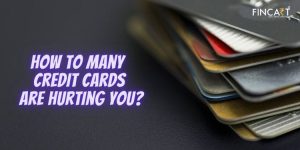Table of Contents
ToggleImagine you’re strolling through a bustling shopping mall, and you’re surrounded by all sorts of stores flashing enticing sale signs. You’re tempted to buy just that one cool outfit that caught your eye but alas, your budget is a bit tight, you don’t want to dip into your savings and the paycheck is still a week away. Suddenly you realise that this is the perfect opportunity to use your credit card! You go in and you buy that dress, and off you go on your merry way. Credit card for the win! When people think of credit cards, they think of situations such as the one above, but there is more, much more than meets the eye when it comes to credit cards.
In the ever-evolving landscape of personal finance, credit cards have become more than just pieces of plastic you use to make a purchase once in a while, they are powerful tools that can shape your financial journey. Let us take a closer look at this relationship between credit cards and personal financial planning that can lead you toward financial success.
Introduction to Credit Cards and Personal Finance:
Before you start integrating credit cards into your financial plan, it’s very important to understand what role they play in financial management. Credit cards are more than just convenient payment devices, as they are also instruments that shape your credit history. Your credit history is important as it is used to determine whether or not you should get a loan or a mortgage from a bank should you ever apply for one.
Building Credit History:
Your credit history is like a resume you build from your financial decisions. Lenders such as banks scrutinise your credit history before giving you a loan. If you have a positive history, your request for a loan will likely get approved, but if your credit history is negative, you’ll likely get rejected or will be charged a high-interest rate. So what contributes to a positive credit history? Well, all you need to do is use credit cards responsibly, pay your bills on time, and maintain a low credit utilisation ratio, which the general rule of thumb says should be about 30%. By doing this, you will let the lenders know that you are a low-risk borrower. On the other hand, if you max out your cards and miss payments, it means a negative credit history and you will find it difficult to get new credit cards or loans from lenders. Establishing and nurturing a solid credit history becomes a crucial step in gaining access to favourable interest rates and financial opportunities.
Budgeting with Credit Cards:
In personal financial planning, budgeting can help you know your total income and expenditure, help you differentiate between essential and non-essential expenses, help you determine your savings amount, and help you identify expenses when you can make cuts. Credit cards, when used wisely, can be effective budgeting allies.
With credit card statements you get the ability to track and manage expenses and you gain a clearer understanding of where your money flows. As budgeting in financial planning can be a little tedious, through credit card statements, you can responsibly track your expenses and help you strategically allocate resources to align with your financial goals.
Credit Card Rewards and Benefits:
Credit cards aren’t just about spending, they also come with various rewards programs that you should explore. You’ll sometimes even find discounts on websites that are exclusive to credit card holders. From cashback to travel points, credit card perks can make a big difference, just imagine turning your everyday expenses into opportunities for financial gain. Understanding and maximising these rewards programs can add a valuable dimension to your personal financial planning.
Debt Management Strategies:
Credit cards are often associated with debt but they can paradoxically become powerful tools for effective debt management. You have to understand your debt landscape. Start noting all interest rates and due dates. Adopt proven repayment strategies, such as the
snowball method, by targeting either the smallest debt for momentum or high-interest debt for reduced overall interest payments.
Leverage your relationship with credit card issuers and negotiate lower interest rates based on your commitment to responsible debt repayment. Use credit cards for smart spending and stick to your budget. Use your cards as a supplementary safety net in emergency situations. Through this strategic integration, credit cards can transform from potential liabilities into essential components of a disciplined debt management plan.
Also Read: What Is Profit Maximisation In Financial Management?
Interest Rates and Fees:
As we have seen there are many benefits that credit cards bring, but one must be aware of the impact they can have on financial planning due to the high interest and various fees they carry. You may want to buy a product and realise that it’ll be cheaper if you buy it through your credit card due to an exclusive discount. That’s good, you were on the lookout for a money-saving opportunity but did you take into account the processing fee or any interest that the purchase carries? The deal is only good if the fees aren’t too high so you have to know the hidden charges that come with using credit cards.
Minimising fees and charges associated with credit cards is an art that, when mastered, can contribute significantly to your overall financial well-being, otherwise, there is a risk of accumulating unnecessary debt.
Emergency Fund and Credit Cards:
Life is unpredictable, and emergencies have a way of striking when we least expect them. Another way in which credit cards can help in personal finance is by acting as a safety net in these unforeseen situations. If you don’t have an Emergency Fund, a credit card with a high limit can act as one and give you peace of mind and financial security. It will help you avoid dipping into your savings or prematurely dipping into your investments.
However, that doesn’t mean that you shouldn’t actively build an emergency fund as relying on credit cards solely can quickly lead to debt that is hard to pay off, which will also negatively affect your credit history. It’s important to strike a balance between relying on your emergency fund and utilising credit cards. Knowing when to use which financial tool helps you ensure you’re prepared for the unexpected without compromising long-term stability.
Impact on Savings and Investments:
Credit cards can help you boost your savings through various discounts, rewards programs, and cashback. This can help you accumulate significant funds for investments. Integrating credit cards into your investment planning can be strategic, but you have to be careful doing so. Don’t max out your cards and invest that money in high-risk stocks in an attempt to score big quickly. Rather, you can use the money you saved through credit cards and invest that into Systematic Investment Plans for example.
Credit Cards and Major Life Events:
From weddings to unforeseen medical expenses, life events, whether joyful or challenging, can have a big impact on your financial health. If managed wisely, credit cards can be instrumental in navigating these changes. But remember, just like any other debt, you should have a repayment strategy already in place before you use the credit cards in order to effectively manage debt. Credit cards can provide a great financial buffer, but careful planning is essential on your part.
Also Read: Is a Credit Card Your Friend or a Foe?
Credit Card Tips for Financial Success:
Let’s take a look at some of the ways through which you can maximise the benefits provided by credit cards, while also making sure that their usage aligns with your long-term goals. –
● Build a positive credit history by paying your bills on time. A positive credit history means easier loans and low interest as well. The improved score also means that your credit limit will increase and you will receive more discounts.
● Try not to max out your credit cards every month as it negatively affects your score.
● Know when your billing cycle starts. Usually, you get 30 days to make repayments or EMIs but if you time your expenses right, you can get up to 45 interest-free days before you have to repay.
● Use credit cards as a financial tool, not as a source of debt. Use them as an emergency fund so you don’t have to dip into your savings or investments during unexpected circumstances.
● Track your expenses by regularly reviewing your credit card statements. This will help you stick to your budget which is key to achieving long-term goals.
● Explore and maximise credit card rewards programs. Know the specific benefits associated with each credit card you have. Using cashback and points can save you significant money in the long run and earn you free flight tickets, movie outings or heavily discounted products.
Conclusion:
So we’ve just seen that credit cards are way more than just tools one uses for impulsive shopping. In personal financial planning, credit cards are tools that can enhance the overall plan and help you achieve your long-term goals. They can help you with budgeting, debt management strategies, investment planning, emergency funds, savings, and more.
Understanding their role in building credit history and maximising their benefits while responsibly using them are essential steps in ensuring a prosperous financial journey. Be careful while using credit cards though, as they can quickly spiral into a huge debt which while crippling on its own, will also negatively impact your credit history. Seek advice from a financial advisor when needed, stay vigilant, and may your financial horizons be as boundless as your aspirations.




